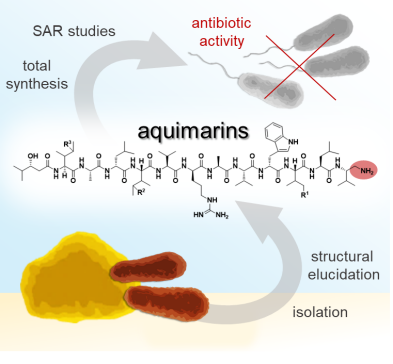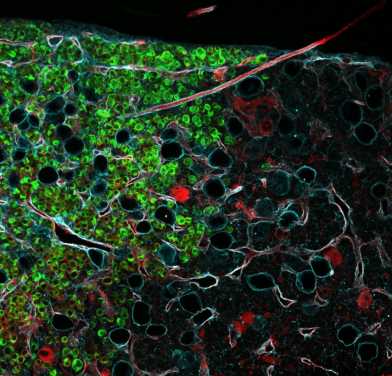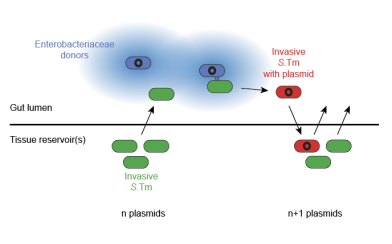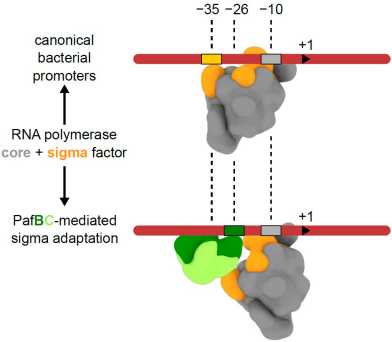2021
Aquimarins, peptide antibiotics with amino-modified C-termini from a sponge-derived bacterium

In a recent "Angewandte Chemie International Edition" paper the Piel group (IMB) in collaboration with the Oxenius (IMB) and Sander (UZH) groups report new peptide antibiotics from a sponge-derived bacterium with unusual amino-modified C-termini.
An in vivo CRISPR screen identifies stepwise genetic dependencies of metastatic progression

In a recent “Cancer Research” paper by the Aceto group (IMHS), a loss-of-function CRISPR-screen in human CTC-derived xenografts identifies genes critical for individual steps of the metastatic cascade, suggesting novel drivers and treatment opportunities for metastatic breast cancers.
Stefanie Jonas elected EMBO Young Investigator

As EMBO yesterday announced in a press release, 26 young researchers were elected EMBO Young Investigators. One of them is Stefanie Jonas, who is leading a research group in the Institute of Molecular Biology and Biophysics.
Invasive properties of bacterial pathogens can boost plasmid spread in the gut

Plasmids can encode antibiotic resistance genes. In a recent paper in eLife, Erik Bakkeren, Wolf-Dietrich Hardt, and colleagues (IMB) show that the gut pathogen Salmonella Typhimurium can collect plasmids from other gut bacteria and store them in tissues, creating a plasmid “record” within hosts.
Transcriptional control of mycobacterial DNA damage response by sigma adaptation

A recent study by the Weber-Ban and Ban groups (IMBB) published in Science Advances uncovers that the master regulator of the DNA damage response in mycobacteria, PafBC, leverages a unique mechanism of transcriptional activation to allow promoter recognition at promoters lacking the canonical -35 motif.